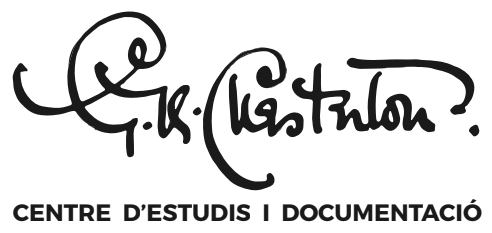Glossary
The glossary includes essential terms related to the person, life, and work of Chesterton. For reasons of space it must inevitably be incomplete. It includes the most important people – family, friends, contemporaries and adversaries -, the most significant places – streets, neighborhoods, buildings, literary, cultural and religious associations – and the most important public activities – conferences, debates, meetings, congresses , election campaigns and travel.
There are currently 6 terms in this directory beginning with the letter I.
I Don’t Know
Private club founded by the Blogg family; located at the Bloggs’ residence at 8 Bath Road, Bedford Park (Ealing, London); Gilbert met Frances there in the autumn of 1896.
Ilkley Moor
Part of Rombalds Moor, a natural site between Ilkley and Keighley, in West Yorkshire; the friendship between Chesterton and Fr John O’Connor began with their conversations while walking through the moor.
Illustrated London News, The
Founded in May 1942 as the world’s first weekly illustrated review; when L.F. Austin, author of the column Our Note Book, died, the editor Sir Bruce Ingram offered Chesterton his weekly permanent section; on 30 September 1905 Gilbert published his first article there; he was a continuous contributor until 20 June 1936 (the date of his last article, published posthumously).
Industrial Revolution
Process of economic, social and technologic transformation started in the second half of the 18th century in England, with the industrialization of the economy, the rural exodus towards towns and cities and the birth of a new social class, the workers, which together with the bourgeoisie will become the new social players; the economic and social transformations derived from this revolution, together with the political and cultural transformations provided by the French Revolution and the Enlightenment, will be the pillars of the new modernity.
Ireland 1870-1921
This period in Ireland’s history corresponds to the era of the Home Rule movement and the route towards independence from the British Empire; resistance from British conservative circles to lose the colony prompted an Irish rising which led to independence in 1921, even though six northern counties stayed in British hands; this conflict raised a strong debate within English society, in the course of coming to terms with the contradictions of being both an Empire and a democracy.
Irish Question
Chesterton went several times to Ireland accompanied by his friends W. B. Yeats and Joseph Plunkett; he took the side of the Irish in regard to the Irish Question; he published Irish Impressions (1919) and Christendom in Dublin (1932), the latter based in his assistance to the Eucharistic Congress.
